Question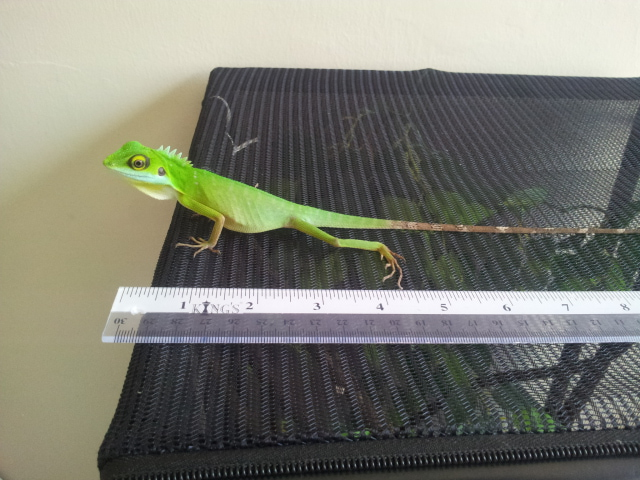 Crested Lizard
Crested Lizard
QUESTION: Hi,
First off, thank you for taking the time to volunteer your knowledge to the rest of us. Its really appreciated.
We have adopted what we believe to be a young, green crested lizard. She, I think its a girl, wandered into our house about 3 months ago, and has yet to decide to leave. We have no idea where she came from, or how old she is. We bought her a terrarium, which she never lives in, and has decided to make the rest of our house hers as well.
We live in the tropics and leave her out in the balcony from the evening till about 9am, when we bring her in to the house while we work. Shes free to roam the entire house but is usually on the table with us, or on the couch. Shes used to being handled, and will climb onto our arms and legs voluntarily.
We feed her meal worms, usually 4-5 a day, but on some days 1-2. We are worried now that she has stopped eating all together. It started at about the same time as she was shedding, which took about a week to clear completely. The shedding finished a week ago, but her appetite has not returned. So she hasn't eaten anything as far as we know for about 2 weeks now.
I'm hoping you would have some idea why she lacks appetite, and hope my description of her lifestyle would give you more insight to the problem.
I've attached a picture and included measurements as well.
Thanks in advance.
-Kenn
ANSWER: That is a beautiful animal. Is this photo recent? She doesn't look to be in poor condition, in the photo, though perhaps a bit thin--it's difficult for me to determine that, as I'm not familiar with that species. However, I don't think I should be able to see her ribs quite so clearly.
Here are few things to consider:
1) How is she getting water? Many lizards of this type drink from dew droplets and rain. If she spends much of her time indoors, is she getting enough water? Is the inside of your home air-conditioned? Could it be too cool, and too dry for her? Low humidity dehydrates tropical lizards, even if they drink water.
2) Mealworms are very high in phosphorus, and need to be balanced with the addition of a calcium supplement. Over a period of time, hypocalcemia will occur if this is not done. Symptoms of hypocalcemia include swelling (edema), weakened/soft/deformed bones, tremors, and loss of appetite. (Most any illness will cause a reptile to lose its appetite--it is often the first sign of a problem). Also, the amount that you are feeding her really doesn't look sufficient for her size--unless she's catching and eating insects outdoors, she needs far more than this. She should be given as many as she can devour in one sitting, though she only needs to be fed every other day. I expect she might eat a dozen or more of them at once.
3) In addition to the above, UVB light is necessary for the health of lizards such as these. Spending hours per day on the balcony when the sun is out may give the lizard sufficient access to that, but if she is spending too much time indoors, perhaps she isn't getting enough. Lack of UVB means lack of vitamin D (which is created in the skin), and lack of vitamin D again means hypocalcemia will occur. If she isn't getting exposure to sunlight, leave her on the balcony for a few hours during the day, rather than just at night. Be certain she has good shade available at all times, as overheating is deadly.
Other possibilities include an overload of internal parasites (which is less likely given her free-roaming habits), or an infection (respiratory or mouth infections can occur in animals that are too cool, as this lowers their immune system response).
If adding warmth, humidity and water, and sunlight do not get her eating again within the week, or she shows any sign of lethargy or weakness, a veterinarian may be the only solution to diagnose and treat the issue.
---------- FOLLOW-UP ----------
QUESTION: Thanks for the prompt reply. The picture was taken a few minutes before I sent the message, and yes, we think she looks a little skinny too.
1. We mist her and her surroundings at least 4-5 times a day. Air-conditioning is seldom on. Temperature is usually about 30C. Will try leaving more droplets around when we mist her.
2. We usually feed her till she starts kicking them away or wandering off disinterested. We add some calcium powder to the worms before feeding them to her. The amount is as per bottle instructions. Will try more worms with more calcium.
3. She gets little direct sunlight as most of balcony is shaded, but the area is generally quite bright. Does UVB only appear in direct sunlight, or is bounced light ok ? Will try to let her spend more time on the balcony.
Thanks again.
-Kenn
AnswerTemperature and care sound very good.
Bounced light outside should be okay, though access to a sunny basking spot would be more beneficial. Light through glass, however, doesn't work (glass doesn't allow UVB through).
Unfortunately, with there not being anything glaringly obviously wrong, there's little more advice I can give. I am not a veterinarian. (Even a vet would be unable to say more without seeing the animal in person at this point).


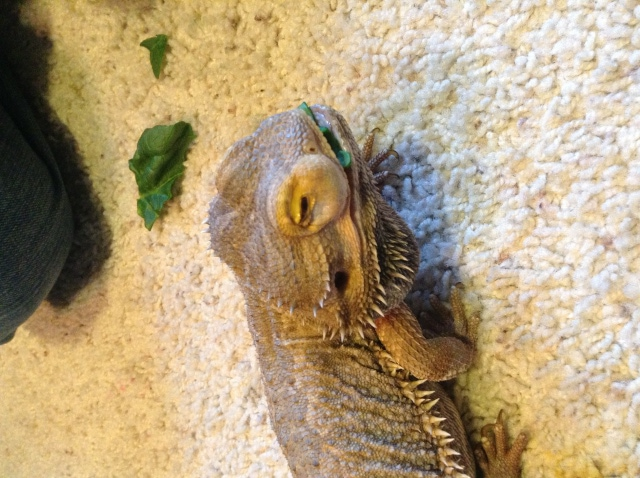 Rex hypovitaminosis A
Question
Rex Rex
This is the picture of hi
Rex hypovitaminosis A
Question
Rex Rex
This is the picture of hi
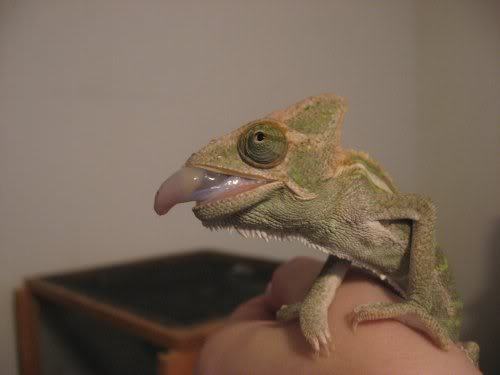 please help our chameleons tongue is very swollen
Questionpicture of swollen cam
QUESTION: about 2
please help our chameleons tongue is very swollen
Questionpicture of swollen cam
QUESTION: about 2
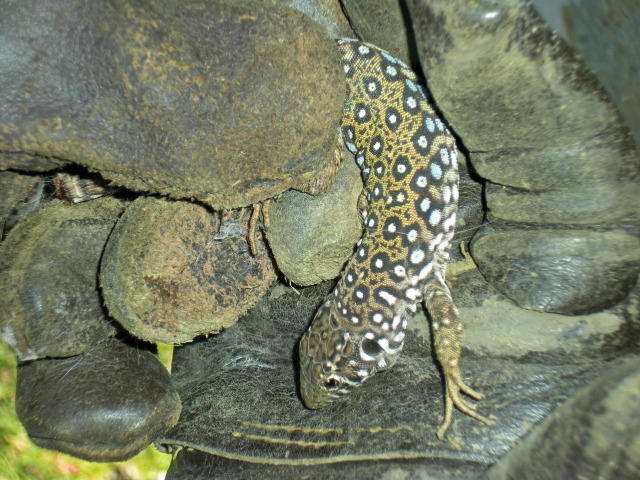 Sand Lizard
QuestionUnknown lizard
QUESTION: Could you help
Sand Lizard
QuestionUnknown lizard
QUESTION: Could you help
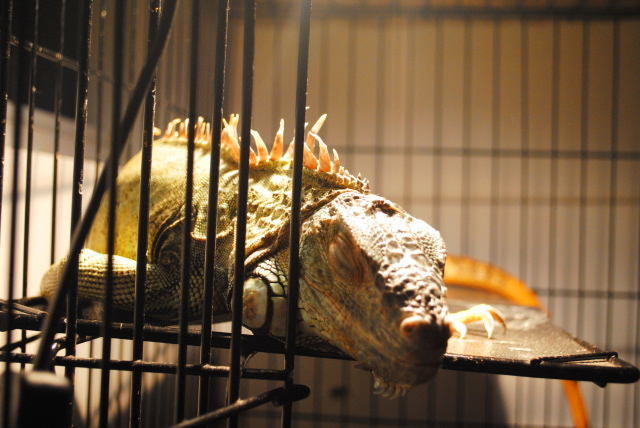 My iguana lost his appetite and is pale, dehydration?
QuestionQUESTION: My pet iguana wont eat as much and im
My iguana lost his appetite and is pale, dehydration?
QuestionQUESTION: My pet iguana wont eat as much and im
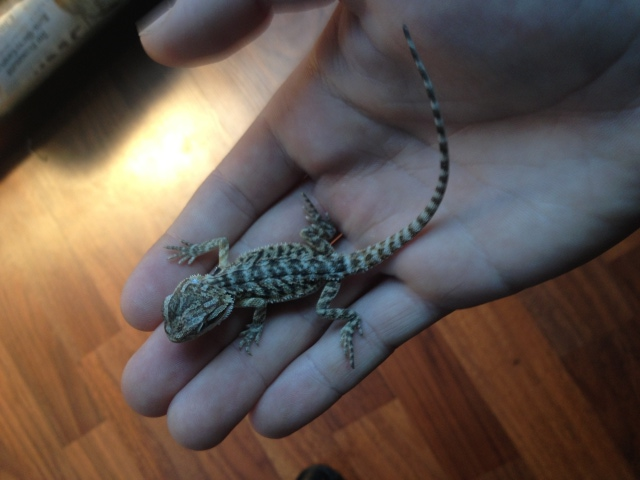 My baby bearded dragon wont eat
QuestionQUESTION: I bought my first bearded dragon (Yos
My baby bearded dragon wont eat
QuestionQUESTION: I bought my first bearded dragon (Yos